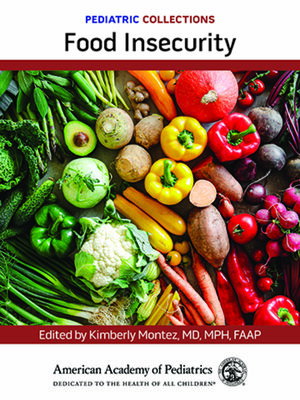Pediatric Collections
ebook ∣ Food Insecurity · Pediatric Collections
By American Academy of Pediatrics (AAP)

Sign up to save your library
With an OverDrive account, you can save your favorite libraries for at-a-glance information about availability. Find out more about OverDrive accounts.
Find this title in Libby, the library reading app by OverDrive.



Search for a digital library with this title
Title found at these libraries:
| Library Name | Distance |
|---|---|
| Loading... |
Pediatric Collections offers what you need to know - original, focused research in a snapshot approach.
Pediatric Collections: Food Insecurity is designed specifically for pediatric clinicians and healthcare professionals to address food insecurity within clinical environments. Food insecurity significantly impacts single parents, individuals from racial and ethnic minorities, those with low incomes, and families with young children. It has a negative effect on health across all stages of life, leading to adverse psychosocial and physical health outcomes. Food insecurity can also hinder academic success and impose significant economic burdens on healthcare expenses. With the integration of screening for food insecurity in pediatric clinical settings now recognized as a standard of care, there are numerous intervention practices available that can be easily scaled and adopted within your practice and community.
Pediatric Collections: Food Insecurity is designed specifically for pediatric clinicians and healthcare professionals to address food insecurity within clinical environments. Food insecurity significantly impacts single parents, individuals from racial and ethnic minorities, those with low incomes, and families with young children. It has a negative effect on health across all stages of life, leading to adverse psychosocial and physical health outcomes. Food insecurity can also hinder academic success and impose significant economic burdens on healthcare expenses. With the integration of screening for food insecurity in pediatric clinical settings now recognized as a standard of care, there are numerous intervention practices available that can be easily scaled and adopted within your practice and community.







